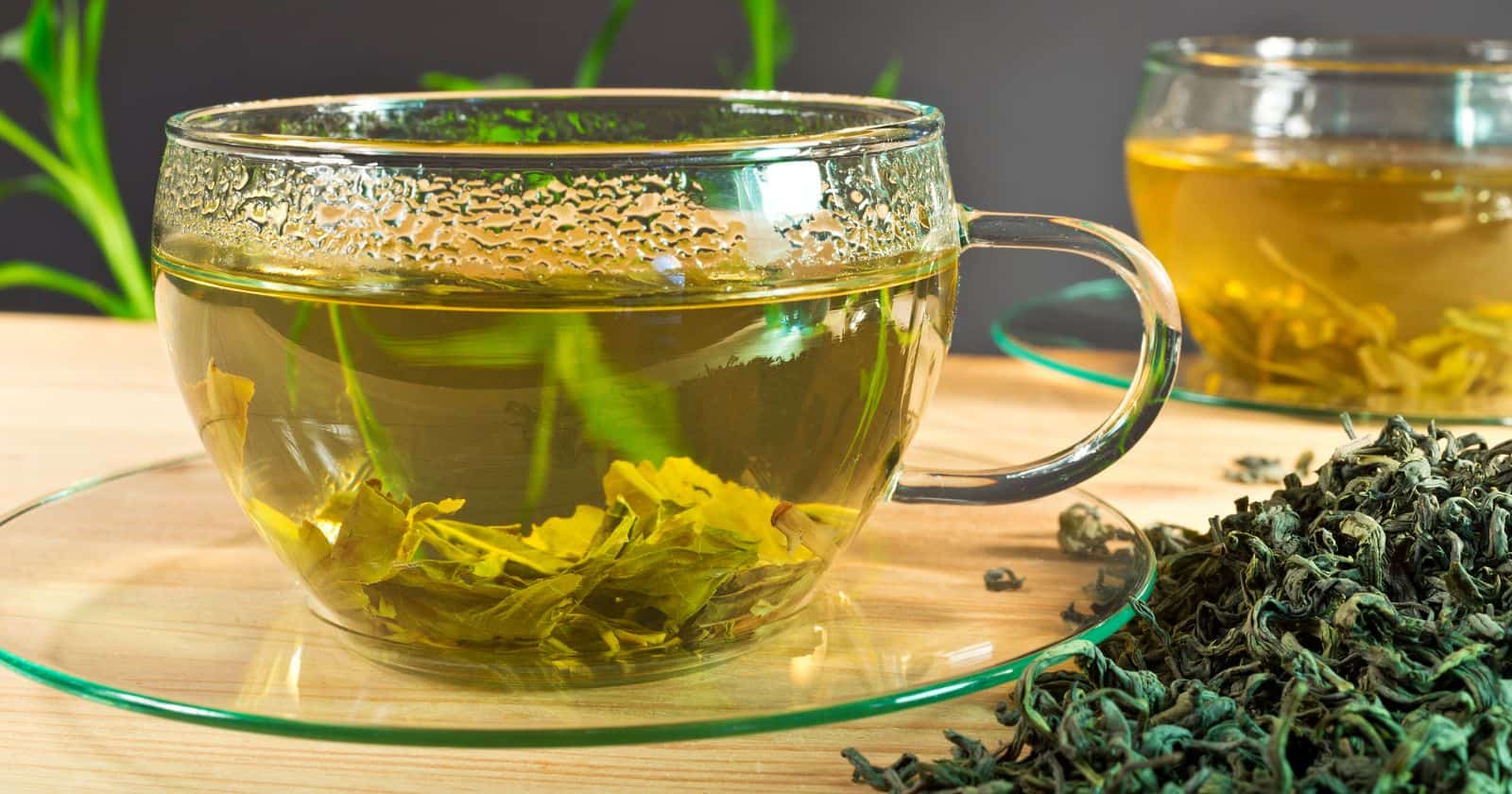Do you want to improve your mental alertness, promote weight loss, and reduce your chance of developing heart disease? Green tea might be the answer you’re looking for. But with so many health claims, it can be hard to separate fact from fiction.
In this guide, we’ll explore the science behind green tea’s health benefits and how to incorporate it into your daily routine.
First, let’s dive into the science behind green tea’s health benefits. Green tea’s high concentration of antioxidants like EGCG has been linked to reducing the risk of chronic diseases like heart disease and certain cancers. It’s also been shown to boost brain function and aid in weight loss by increasing metabolism and promoting fat burning.
And if you’re looking for a beverage that’s low in calories and caffeine, green tea is a perfect choice. But how much should you drink, and are there any risks? We’ll answer all those questions and more.
Whether you’re a green tea newbie or a seasoned sipper, there’s something for everyone in this comprehensive guide to healthy living with green tea.
In the following sections, we’ll explore how you can incorporate green tea into your daily routine, from brewing techniques to tasty recipes. We’ll also delve into some potential side effects and precautions to remember.
The Science Behind Green Tea’s Health Benefits
The Science Behind Green Tea’s Health Benefits lies in its unique combination of bioactive compounds. This beverage is rich in antioxidants that protect our cells from free radical damage, which can lead to cancer, aging, and other diseases.
Moreover, green tea contains caffeine, which stimulates our nervous system and makes us more alert, focused, and energized. Lastly, green tea has an amino acid called L-theanine that promotes relaxation, reduces anxiety, and improves sleep quality.
How do these compounds affect our health and well-being? Here are some ways:
- Brain function: Green tea can improve memory, attention, and mood, thanks to its caffeine and L-theanine content. The combination of these two compounds has a synergistic effect on brain waves, leading to more alpha activity, associated with relaxation and creativity, and less beta activity, associated with stress and distraction.
- Weight management: Green tea can boost our metabolism and help us burn fat, especially around the belly area, a risk factor for heart disease and diabetes. One of the reasons for this effect is the catechin EGCG, which has been shown to increase thermogenesis (the production of heat by the body) and fat oxidation (the breakdown of fat into energy).
- Cardiovascular health: Green tea can reduce the risk of heart disease and stroke by several mechanisms, such as lowering LDL (“bad”) cholesterol, preventing blood clots, and improving blood vessel function. Some studies have found that green tea drinkers are less likely to die from cardiovascular causes than non-drinkers.
- Cancer prevention: Green tea has been studied for its potential anticancer properties, particularly against breast, prostate, and colorectal cancers. The mechanisms behind this effect are complex and not fully understood, but they involve various pathways related to oxidative stress, inflammation, and cell signaling. EGCG is again a key player in this process.
How to Incorporate Green Tea into Your Daily Routine
Green tea is a versatile drink that can easily be incorporated into your daily routine. One simple way to do this is by swapping out your morning cup of coffee for a steaming hot cup of green tea.
Not only will this give you a boost of energy, but it will also help hydrate your body and provide essential antioxidants. But if you’re not a fan of drinking tea, there are other ways to incorporate it. Here are some tips:
- Mix matcha powder with oatmeal and honey for a delicious and healthy breakfast.
- Add green tea to salads, marinades, or dressings for a subtle flavor boost.
- Use green tea in baking recipes, like muffins or cakes, to add unique flavor and antioxidants to your treats.
- Try incorporating green tea into energy balls or smoothies for a nutritional boost on the go.
Incorporating green tea into your daily routine is not only easy, but it also has many health benefits. Green tea is known for its high levels of antioxidants, which can help fight inflammation and improve heart health.
It contains less caffeine than coffee, making it an excellent alternative for people who experience caffeine jitters or are sensitive to coffee.
Additionally, the amino acid L-theanine in green tea has been shown to promote relaxation and reduce stress.
Potential Side Effects and Precautions
Green tea can have potential side effects due to its caffeine content. These side effects can range from mild to severe, including anxiety, tremors, irritability, and sleeping problems. Headaches and vomiting can also occur if large amounts of green tea are consumed.
Other potential side effects include dizziness, convulsions, anemia, and iron deficiency. It’s important to note that these side effects are less familiar with green tea than other drinks containing caffeine. If you are sensitive to caffeine or have any concerns, it’s advised to consult a healthcare professional.
One way to avoid potential side effects from green tea is to limit your caffeine intake. Many brands offer decaffeinated green tea options that provide health benefits without caffeine.
If you choose to drink caffeinated green tea, consuming at most 3-4 cups a day is recommended, which should be spread out throughout the day rather than drinking them all at once. Also, taking a break from consuming green tea for a few days between regular consumption can help lessen the chance of experiencing adverse side effects.
Despite the potential side effects, green tea can have many health benefits. Certain compounds in green tea have been linked to reducing inflammation, aiding in weight loss, and improving brain function.
However, it’s important to note that excessive green tea consumption can negatively affect the body. It’s recommended to moderate consumption and consults a healthcare professional if you have any concerns or experience adverse side effects.
Green Tea- Is It Right for You?
Green tea is known for its numerous health benefits and is considered one of the healthiest beverages in the world. Loaded with antioxidants, green tea can improve brain function, reduce the risk of heart disease, protect against certain types of cancer, lower blood pressure, and help with weight management.
However, it is essential to note that excessive consumption of green tea can be harmful due to its caffeine content. Therefore, limiting the daily intake to 8 cups or less is recommended.
Benefits of Green Tea
- Antioxidants: Green tea is an excellent source of polyphenols, potent antioxidants that fight free radicals in the body, protecting cells from damage and reducing the risk of chronic diseases.
- Brain Function: Green tea contains caffeine and L-theanine, which work together to improve brain function. In addition, green tea may help reduce the risk of Alzheimer’s and Parkinson’s disease.
- Heart Health: Drinking green tea regularly may help lower the risk of heart disease by improving blood flow, reducing inflammation, and lowering cholesterol levels.
- Weight Management: Green tea has been shown to increase metabolism and aid in weight loss, making it a great addition to any healthy diet.
Risks of Drinking Green Tea
- Caffeine: Green tea contains caffeine, which can cause side effects such as anxiety, tremors, irritability, and insomnia, especially when consumed in excessive amounts.
- Iron Absorption: Green tea may reduce iron absorption from foods, so it is recommended to drink it between meals rather than with meals.
- Pregnancy: Pregnant women should limit their caffeine consumption, including that from green tea, to reduce the risk of complications.
Green Tea Substitutes
Green tea may not be everyone’s cup of tea, but fret not; there are many substitutes. Black tea, white tea, chamomile tea, chai tea, lemon balm tea, rooibos tea, coffee, ginger tea and dandelion tea are some options available.
For those who swear by the health benefits of green tea, switching to any of these substitutes won’t compromise their well-being.
Black Tea
Black tea, one of the most popular substitutes, contains antioxidants that help maintain cardiovascular health, and improve brain function.
Oolong Tea
Oolong tea, on the other hand, can be a powerful ally in weight loss and delaying the signs of aging. With its delicate and sweet taste, white tea has antioxidant properties similar to green tea, making it an excellent alternative.
Herbal Tea
Herbal teas, such as chamomile, lemon balm, ginger, and dandelion, are fantastic green tea substitutes. These teas have varying health benefits, from aiding digestion and reducing inflammation to detoxifying the liver and regulating blood sugar levels.
Rooibos Tea
Rooibos tea, another herbal option, is rich in antioxidants and is known for its anti-inflammatory properties.
Chai Tea
Chai tea, a fragrant mix of spices and black tea, is also popular and provides many health benefits.





